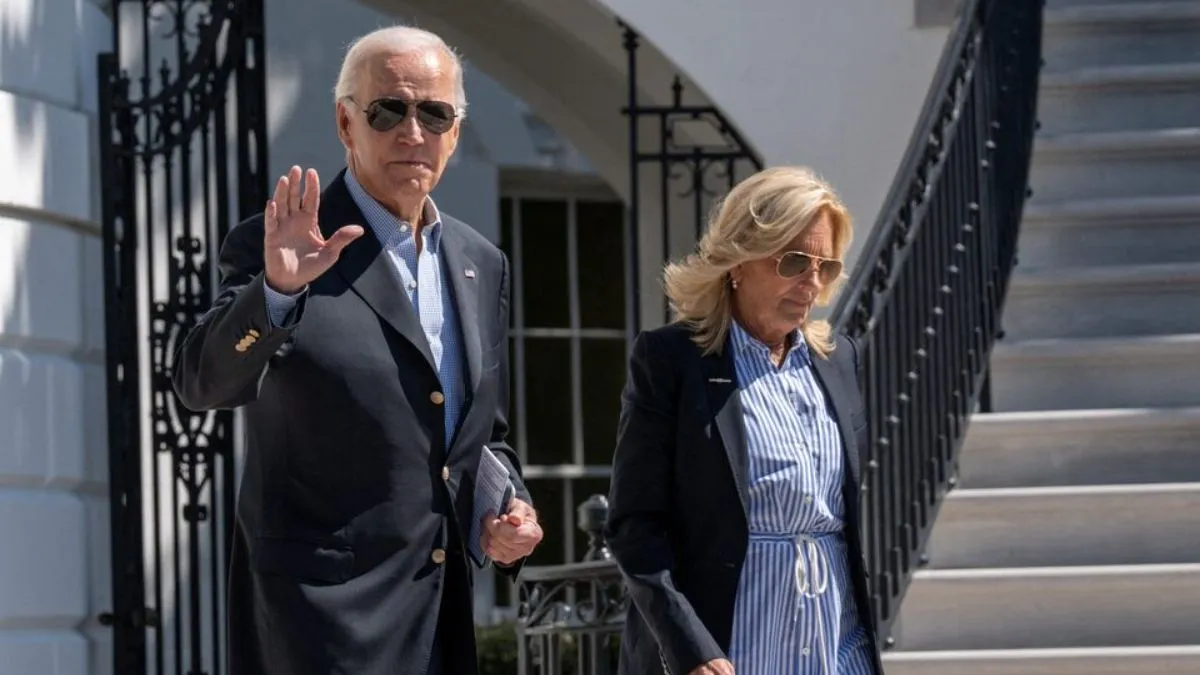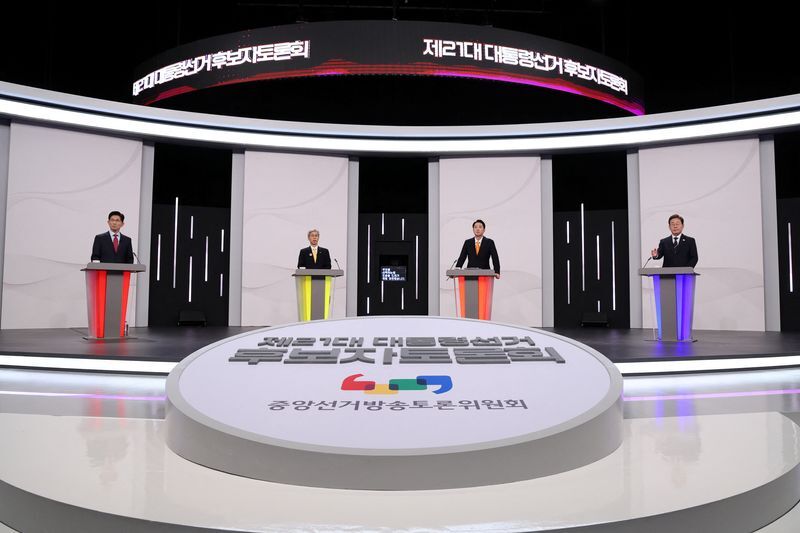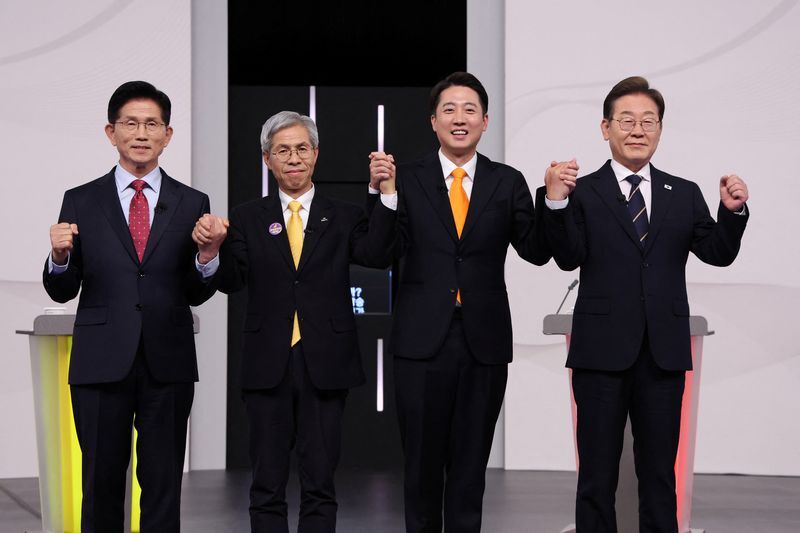Twitter has become the battleground for presidential debates, where every word matters, and every tweet can spark a nationwide conversation. As we dive into this digital arena, it’s clear that Twitter presidential debates are redefining how politics are discussed and perceived in today’s fast-paced world. In this article, we’ll explore how Twitter has transformed political discourse, the impact it has on voters, and why it’s become such a powerful platform for candidates to showcase their ideas.
Imagine a world where presidents and presidential candidates don’t just speak to thousands in arenas but millions through their fingertips. Twitter presidential debates have turned the traditional debate format on its head, allowing candidates to reach an unprecedented number of people in real-time. It’s not just about the stage anymore; it’s about the screen.
Whether you’re a political enthusiast or just someone scrolling through their feed, Twitter presidential debates have become impossible to ignore. This platform has given candidates a direct line to the public, bypassing traditional media filters. Let’s dive deeper into this phenomenon and uncover why it’s become such a crucial part of modern politics.
Why Twitter Presidential Debate Matters
Twitter isn’t just a social media platform; it’s a megaphone for political voices. In the context of presidential debates, it serves as both a stage and a battleground. Here’s why it matters:
First, Twitter allows candidates to reach millions of users instantly. A single tweet can go viral within minutes, amplifying their message far beyond the traditional audience of a televised debate. Second, it provides an unfiltered platform where candidates can speak directly to the public without media spin. Finally, it encourages engagement, allowing voters to interact with candidates in real-time.
The Evolution of Political Communication
The way we consume political information has changed dramatically over the years. From town hall meetings to televised debates, we’ve come a long way. Twitter presidential debates represent the next evolution in this journey. They allow for a more dynamic and interactive experience, where candidates can respond to each other’s tweets, address issues in real-time, and engage with voters directly.
- Kaylee Hartung Eye A Comprehensive Look Into The Rising Stars Beauty
- Ari Kytsya Leaked A Comprehensive Exploration Of The Controversy And Its Implications
For example, during the 2020 election, Twitter became a hotspot for political discourse. Candidates used it to share their policies, respond to opponents, and engage with supporters. This shift in communication style has made politics more accessible to the average person, who can now participate in the conversation without leaving their couch.
Key Players in the Twitter Presidential Debate
Not all candidates are created equal when it comes to Twitter. Some have mastered the art of the tweet, while others struggle to find their voice. Here’s a look at some of the key players:
- Donald Trump: Known for his bold and often controversial tweets, Trump turned Twitter into his personal megaphone during his presidency. His ability to grab attention and spark debate made him a dominant force on the platform.
- Joe Biden: While not as active as his predecessor, Biden has used Twitter to share his policies and connect with voters. His tweets are often more measured, focusing on key issues like climate change and healthcare.
- Elon Musk: Although not a presidential candidate, Musk’s acquisition of Twitter has had a significant impact on how the platform is used for political discourse. His ownership has sparked debates about free speech and censorship.
How Candidates Use Twitter
The way candidates use Twitter can vary widely. Some prefer a more formal approach, sharing detailed policy proposals and links to official statements. Others take a more casual tone, using memes and hashtags to connect with younger audiences. Here are some common strategies:
- Hashtags: Candidates often use hashtags to amplify their message and join trending conversations. For example, #Election2024 could be used to draw attention to tweets related to the upcoming election.
- Memes: Memes have become a powerful tool in political communication. They allow candidates to convey complex ideas in a simple and engaging way.
- Live Updates: During debates, candidates or their campaign teams often provide live updates on Twitter, sharing key moments and responding to opponents in real-time.
The Impact of Twitter on Voters
Twitter has a significant impact on how voters perceive candidates. A well-crafted tweet can sway public opinion, while a poorly worded one can do the opposite. Here’s how:
First, Twitter allows voters to see candidates in a more personal light. They can get a sense of their personality, values, and communication style through their tweets. Second, it provides a platform for voters to engage with candidates directly, asking questions and sharing their concerns. Finally, it allows voters to stay informed about key issues and events in real-time.
Challenges Faced by Candidates
While Twitter offers many benefits, it also presents challenges. Misinformation can spread quickly, and a single tweet can be taken out of context. Candidates must be careful to ensure their messages are clear and accurate. Additionally, the fast-paced nature of Twitter means candidates must be prepared to respond quickly to breaking news and unexpected events.
Data and Statistics: The Numbers Behind Twitter Presidential Debate
Let’s take a look at some of the numbers that highlight the importance of Twitter in presidential debates:
- During the 2020 election, Twitter saw a 25% increase in political conversations compared to the previous cycle.
- Candidates’ tweets often reach millions of users within minutes, with some tweets receiving over 100,000 likes and retweets.
- A study found that 60% of voters aged 18-29 use social media, including Twitter, as a primary source of political information.
These numbers show just how influential Twitter has become in shaping public opinion and engaging voters.
The Role of Twitter in Shaping Public Opinion
Twitter doesn’t just inform voters; it shapes their opinions. Through hashtags, trending topics, and viral tweets, candidates can influence how people perceive key issues. For example, a tweet about climate change can spark a nationwide conversation and encourage voters to prioritize the issue when casting their ballots.
How to Engage with Twitter Presidential Debate
For those looking to engage with Twitter presidential debates, here are a few tips:
- Follow Candidates: Following candidates’ official Twitter accounts is a great way to stay informed about their policies and positions.
- Join Conversations: Don’t just read tweets; participate in the conversation. Respond to candidates’ tweets, ask questions, and share your thoughts.
- Verify Sources: With so much information available, it’s important to verify the sources of the tweets you see. Look for verified accounts and reliable news outlets to ensure accuracy.
Best Practices for Candidates
Candidates looking to succeed on Twitter should follow these best practices:
- Be Consistent: Regularly posting updates and engaging with followers helps build a strong presence on the platform.
- Know Your Audience: Understanding who your followers are and what they care about can help tailor your message for maximum impact.
- Stay Authentic: Voters appreciate authenticity. Candidates who are genuine and transparent in their tweets are more likely to resonate with audiences.
Case Studies: Successful Twitter Presidential Debate Moments
Let’s take a look at some memorable moments from past Twitter presidential debates:
During the 2016 election, Donald Trump’s tweets about the debate’s moderators sparked widespread discussion, highlighting the power of Twitter to shape public perception. Similarly, Joe Biden’s use of memes during the 2020 election helped him connect with younger voters and showcase a more relatable side of his personality.
Lessons Learned
These moments teach us valuable lessons about the power of Twitter in presidential debates. Candidates who understand how to use the platform effectively can gain a significant advantage in reaching and engaging with voters.
The Future of Twitter Presidential Debate
As we look to the future, it’s clear that Twitter will continue to play a crucial role in presidential debates. With advancements in technology and changes in user behavior, the platform will likely evolve to meet the needs of both candidates and voters.
Trends to Watch
Some trends to watch include the rise of video content, increased use of AI-driven analytics, and greater emphasis on fact-checking and verification. These developments will shape how Twitter is used in future presidential debates and influence the way candidates communicate with voters.
Conclusion
In conclusion, Twitter presidential debates have become an integral part of modern politics. They offer candidates a powerful tool to reach and engage with voters, while providing voters with a platform to stay informed and participate in the conversation. As we’ve seen, the impact of Twitter on presidential debates is significant, and its role will only continue to grow in the years to come.
So, whether you’re a candidate looking to make your mark or a voter seeking to stay informed, Twitter is a platform you can’t afford to ignore. Take action today by following candidates, joining conversations, and sharing your thoughts. Together, we can shape the future of political discourse on Twitter.
Table of Contents
- Why Twitter Presidential Debate Matters
- The Evolution of Political Communication
- Key Players in the Twitter Presidential Debate
- The Impact of Twitter on Voters
- Data and Statistics: The Numbers Behind Twitter Presidential Debate
- How to Engage with Twitter Presidential Debate
- Case Studies: Successful Twitter Presidential Debate Moments
- The Future of Twitter Presidential Debate
- Conclusion
- Brandi Passante Nude Pics A Comprehensive Analysis And Understanding
- Jameliz Benitez Smith A Comprehensive Look Into Her Life And Career


